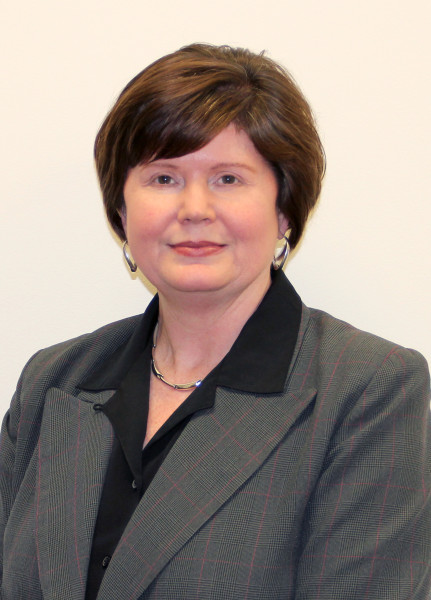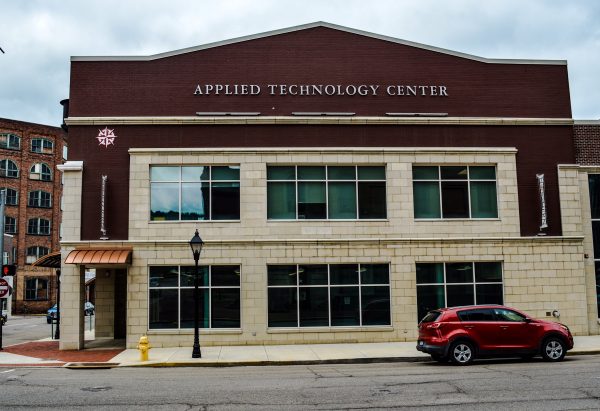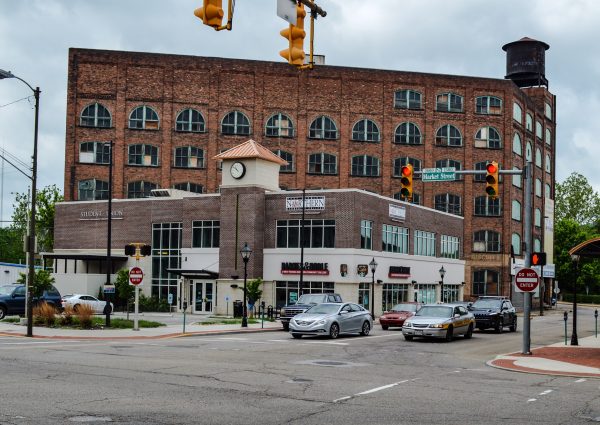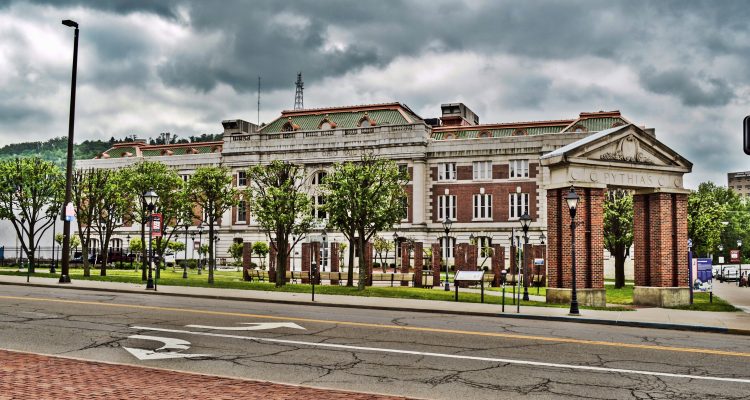The mission is her mission.
Dr. Vicki Riley became the new president of West Virginia Northern Community College on Jan. 6, and she was well aware of the progress the institution made during her predecessor’s tenure. Dr. Martin Olshinsky guided the community college through a facilities expansion in downtown Wheeling, and he also addressed curriculum needs based on the arrival of the gas and oil industries in the Upper Ohio Valley.
WVNCC’s enrollment won much acclaim, as well, with Olshinsky as president, so following in his footsteps may have seemed like a daunting task for anyone who dared. Riley, though, accepted the position well versed in the community college education. In fact, she’s not worked in a different arena since earning her doctorate in education from the University of Virginia in 1994.

Her first job was at Dabney Lancaster Community College in Clifton Forge, Va., where she was a counselor/tutor coordinator from 1984-88, and then she advanced to Blue Ridge Community College in Weyers Cave, Va. She made her West Virginia debut after accepting a position as assistant provost at Fairmont, W.Va., State Community and Technical College in 1995. Since then she’s worked in Huntington (Marshall Community and Technical College) and in Charleston (special assistant to the chancellor for the community and technical college council).
In 2008, she arrived to Wheeling to become the chief academic officer. In that position Riley expanded allied health programs and enrollment and expanded online course offerings, coordinating the implementation of five degree programs that can be earned totally online. In addition, Riley created an online, high school dual-credit option.
Riley has become a fan of the Friendly City, too, while she and her husband (Richard McCray) have resided near Wheeling Park and is especially a fan of Heritage Port in the downtown.
“You can find something to do every weekend in Wheeling if you want to, and most of it is free,” she said. “That’s just amazing. I have not lived in many communities that offer as much as Wheeling does, so I am very proud that West Virginia Northern Community College plays a role in revitalizing the downtown district.”
Novotney: With the cost of higher education increasing, more people are choosing the community-college route, are they not?
Riley: They are, and right now we have new tuition rates for the fall semester, but we are still the lowest tuition rate in the region. It’s an excellent value no matter what program you enroll in, whether you are looking for an applied technology degree or looking to get your first two years completed in this atmosphere before moving on to a four-year school. It’s a great opportunity for the residents of this area and all areas that have community colleges.
Novotney: And community colleges are for people of all ages?
Riley: Absolutely, and right now we have a very good mix of younger and older students. At West Virginia Northern you will see the students right out of high school, and you’re going to see the guy who’s 55 but just got laid off at Ormet. It’s a wonderful thing to see those different age groups and different levels of experience. Not only are they learning about what’s being taught in the classroom, but they are also learning about life from each other.

Novotney: In your opinion, is the future of education more about the two-year degree instead of the four-year degree?
Riley: I think right now the community colleges in this country are the foundation of higher education. One, because we get folks off to a good start, and two, because life happens, and things change, and we see a lot of people who have already been out in the workforce come back to reinvent themselves.
Community colleges are here to catch you on the front end and on the back end, and there are no other institutions that have that mission. That’s what we do. That’s our mission. It’s been the mission for 100 years, it’s not going to change, and we do it very well in my opinion.
Novotney: It is also important to see the educational needs in the local economy, and that is something that West Virginia Northern Community College has done for many years. Will that continue with you as the president of the community college?
Riley: It will, and what we do is look to see where the jobs are going to be in the future. We are not in the business of providing programs that will not help our students find jobs in the local job market. That’s not what we do.
Another part of the community college’s mission is staying in tune with economic development and staying in tune with business and industry. We do our very best to work as a partner with the local economy and job market. When we added the applied technology programs, we did that as a partner with local industries.
One of the things I will continue working on is trying to provide more external funding because the state dollars keep going down, and business and industry have been wonderful partners to make up those dollars. If you can find that need that makes sense to business and industry, they will get involved as far as funding is concerned. In some of our programs, you can come here for free because of the partnerships we have formed.
What we need to do is position ourselves so we can be flexible. There are times when a program may have a short life span so we have to be flexible so we can get something up and running quickly, and then we have to have the ability to end programs so we can move beyond.
Novotney: West Virginia Northern Community College has three separate campuses – downtown Wheeling, Weirton, and New Martinsville. How will you balance your work to ensure all three campuses are moving forward the way you wish them to?
Riley: Each campus is a little different, and each campus has a different personality because the areas they are serving are all a little different. We just have to stay in tune with the local needs, and we have folks at each campus that help us do just that. We also have to pay attention to what developments are taking place across the river in East Ohio because we serve those potential students, too.
I think all colleges are in competition on some level for students, and that’s why we offer the pricing we do to potential students residing in those border counties. Those students can come here at our in-state rates, and you go to where the program is that you need for employment.
Novotney: The Wheeling campus has been in the news often during the past several years thanks to the recent physical expansion in downtown Wheeling. What may be next?
Riley: We received the funding to be able to purchase the building behind our front entrance here, and now we are working on the funding to be able to tear it down because it is full of asbestos. Ceilings, pipes, floors – it’s everywhere.
The building really is not useable, so what that leaves us with is a real nice footprint for possible expansion down the road. Our hope is to build a new building so we can have space for things like our new welding program that we will start offering next semester.
For a while it may be a nice parking lot because parking in this area of downtown can be an issue, but the long-term plan is to construct something new when the funding becomes available.
Novotney: What curriculum expansions may take place in the future?

Riley: Curriculum-wise we’re adding the welding program because that’s been something needed even before the gas and oil industries arrived to this area, and that lets me think that it will be able to sustain itself even after all of the pipelines are constructed.
One thing we will begin in the fall is developing our new, five-year strategic plan to start to set some new directions for all of our employees on all three campuses that we have. One of the things that we are targeting is working with our local high school students on two levels. We want to be able to reach out to the seniors who may have most of their requirements fulfilled so they may come to their local community colleges to get started on their college courses.
The caveat is that we are doing a lot of that with online courses so those courses are as available as possible to those high school students in that position.
Novotney: What is the role of WVNCC in downtown Wheeling?
Riley: I believe our role in downtown Wheeling is to be a good partner, and I think we have done that very well with the city. I think we can play a larger role with connecting with tourism, and with attracting more economic development. When there are prospects in town, they get to see this campus, and that’s a very good thing because business often wishes to locate in communities where community colleges exist.
Novotney: We have seen local colleges become universities in recent years. What are the chances that WVNCC may make the same move?
Riley: If any changes similar to that were to occur, those changes would not include shedding the community college mission. That will always be there.
We have five main pieces to the community college mission: applied programs; transfer education; continuing education; working with business and industry; and remedial education for those students who aren’t ready for classes on the college level.
What could possibly happen, and this has happened across the country, is that role could be expanded in the future if there is a specific need that cannot be fulfilled by another college. In Florida there are a lot of community colleges that still offer what they always have, but they’ve added undergraduate programs, too.
I don’t know if we’ll ever have that need in this region, but if there is that need, we would certainly look at it because that’s what we do.
Novotney: What is the best part about being the president of WVNCC?
Riley: The people.
We just graduated 450 students, and everybody has a story, and we have been able to be a part of their stories on their individual roads to being successful. It’s always wonderful to hear that they acquired what they needed from WVNCC. That’s the best part.
One of the best parts about becoming the new president is that I had been here already for eight years, and I knew that we had great people working here. I knew no matter what direction we would try to go in that we could make it happen because of the people. We have people who are so dedicated to the students and to the college that it’s just been wonderful.
Novotney: During your time here, what have you seen happening in Wheeling?
Riley: I have seen Wheeling improving on several fronts. I think younger residents are getting more interested in the future of Wheeling, and I think we are seeing potential.
When people of all ages are engaged, that’s when a resurgence takes place, and that’s what I see taking place in Wheeling right now.






